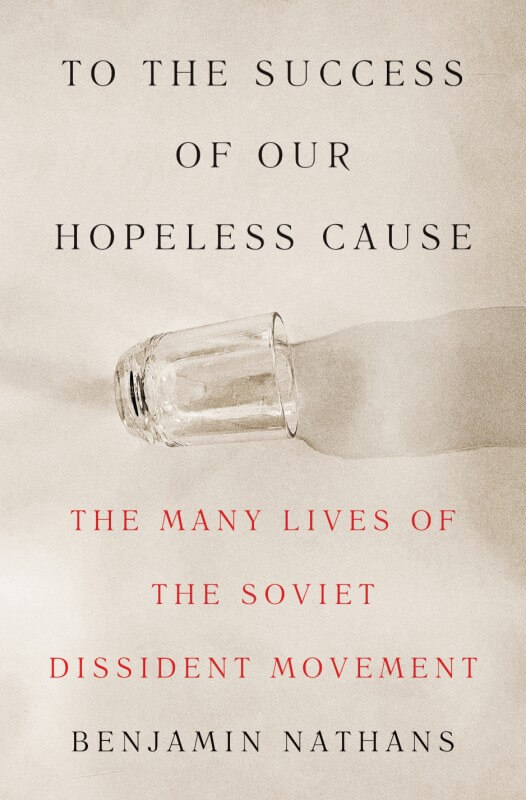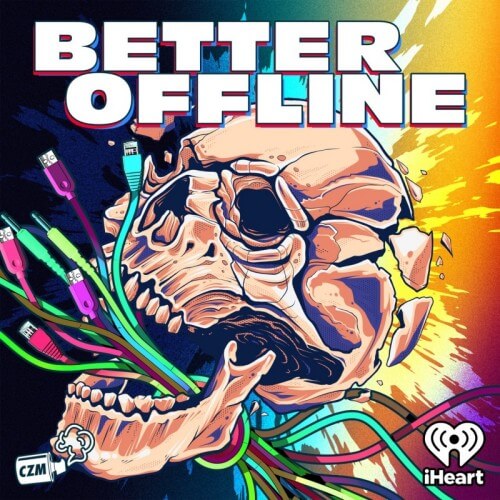
I've recently started reading Murderland1, a terrific and spellbinding book by Caroline Fraser. Here's a quote from the book:
In the early 1920s the fuel additive tetraethyl lead (TEL) is developed and marketed by General Motors and Standard Oil. It is designed to make automobile and airplane engines run without knocking. GM knows that an ideal antiknock solution already exists in ethyl alcohol, or ethanol. But virtually any hillbilly with a still can make ethanol from fermented fruit or corn.
No profits stand to be made from it. TEL, on the other hand, can be patented. So tetraethyl lead is rebranded as “Ethyl,” which sounds friendly, like a woman’s name. Sales to the public begin on February 1, 1923, but the advertisements don’t mention lead. On October 23, 1924, a Thursday, a man working at a Standard Oil TEL-refining plant in Elizabeth, New Jersey, is seeing things that aren’t there. On Friday he begins screaming and running around the plant to escape imaginary pursuers. On Saturday he dies. Four others follow. Thirty-one workers are hospitalized with hallucinations and convulsions. The violent are placed in straitjackets. Their symptoms are the result of acute lead poisoning, or saturnism.
At around the same time, hundreds of men begin hallucinating butterflies at a DuPont plant manufacturing TEL in Deepwater, New Jersey, swiping their hands through the air, trying to push winged insects away from their faces. But it isn’t butterflies that are bothering them. It’s lead. The hallucinations terminate in “violent insanity and death,” according to The New York Times. Eight die. Three hundred fall ill. Some become permanently vacant.
The fuel additive is the work of GM’s mechanical engineer Thomas Midgley Jr., who invents not only leaded gasoline but chlorofluorocarbons, which will come to be regarded as two of the most harmful chemical compounds ever produced during the industrial age. Chlorofluorocarbons will destroy the atmosphere. Leaded gasoline will drive everyone mad, slowly, filling children’s teeth with lead. Sometimes bad things are engineered by engineers.
Lead poisoning at refineries is one thing, but what about the chronic, day-by-day, breath-by-breath exposure caused by leaded gasoline? And smelter smoke? What about the need to breathe? American physicians raise concerns that lead particulates will blanket the nation’s roads and highways, poisoning neighborhoods slowly and “insidiously.” They call it “the greatest single question in the field of public health that has ever faced the American public.” Their concerns are swept aside, however, and Frank Howard, a vice president of the Ethyl Corporation, a joint venture between General Motors and Standard Oil, calls leaded gasoline a “gift of God.”
On October 30, 1924, untroubled by the hallucinations, convulsions, and straitjackets, Midgley, himself an Ethyl vice president, holds a press conference in the Chrysler Building in New York, and raises a tin of what he claims to be TEL in front of assembled journalists. He inhales deeply of the fumes and then, like Lady Macbeth, washes his hands in it, saying, “I’m not taking any chance whatever.” He has, in fact, begun wearing gloves religiously in his lab work. He knows that lead is absorbed through the skin. This has already happened to him: the year before, he was forced to take a long vacation in Miami to “cure” himself of lead poisoning. In 1940, Midgley becomes paralyzed by what is said to be polio and contrives a Rube Goldberg device of pulleys and ropes to lift himself out of bed. In 1944 he strangles himself with his ropes, accidentally or on purpose. The American Chemical Society bestows upon him the Priestley Medal, its highest award, because his achievements are lasting.
Fraser weaves stories of how human-made chemicals pollute Earth and air with stories of serial killers. One of the most obvious questions that turned up in my head when reading about the book is: which killer is the more dangerous: the one behind the desk or the one holding a knife?
A more interesting question, from a moral perspective, can be: who bears the bigger burden? The serial killer who kills behind the scenes or the serial killer who lies to the public while killing far more people?
I was about to add this: who bears the bigger burden: the serial killer who's driven by psychological damage or the serial killer who's driven by greed? but as I was writing the sentence, the obvious dawned on me: being driven by greed to the extent that one kills people is of course at least one kind of mental disturbance.
I could sound nuts, but I believe that nearly all humans have the same things at the core of their being: they empathise with and they do things for the well-being of others. I believe that greed is normalised2: it doesn't spring from nowhere.

“They did something,” Andrei Amalrik wrote, “simple to the point of genius: in an unfree country, they began to conduct themselves like free people.”
This is a quote from Benjamin Nathans's wondrous book To the Success of Our Hopeless Cause: The Many Lives of the Soviet Dissident Movement3. The book details the start of modern-day 20th-century dissidence, where a new line of thinking started permeating the minds of young freedom fighters.
The practical utility of a perfectly transparent language first came to Volpin’s mind in connection with a specific and usually very unpleasant game, namely, the cat-and-mouse dialogues that inevitably occurred during interrogations by KGB officials. Interrogations provided rich material for thinking about language and ethics: when to tell the truth and when to remain silent; how to refuse to answer a question, even under pressure; how to avoid lying or setting a trap for oneself. In his quest for a language free of ambiguity, Volpin had concluded that the fundamental task of ethics was the eradication of lying.
Alexander Esenin-Volpin was a young freedom fighter, one who looked to mathematics and linguistics for answers. He and others—at the start, notably Andrei Sinayavsky and Yuli Daniel—decided to use the legal and logical decrees as invented by the Soviet state against themselves, constantly noting how the state went against its own laws.
One surefire sign of a regime that's gone extremely skewed is that it takes itself too seriously.
The most insidious texts, according to the KGB chairman, were those that not only “take an ironic stance vis-à-vis Soviet reality, but do so allegorically, as if to demonstrate the impossibility of speaking the truth or of openly criticizing shortcomings.” Such meta-criticism could not be tolerated: authors must be punished not only for uttering the impermissible, but for implying that the impermissible could not be uttered.
The Soviet dissidents did perhaps not manage to make the mid-level commissars rebel against their own ineptitude, but at least they opened the eyes of the western world and made their fellow Soviet denizens aware that they were not along.
The two arrested writers were about to be thrust into a Cold War drama that would reset the course of their lives and define their place in history. “No cause célèbre in modern times has had a greater impact on the intellectual world,” declared their fellow writers and defenders Günther Grass, Graham Greene, François Mauriac, Arthur Miller, and Ignazio Silone in a 1966 collective statement.
Not to be outdone, another commentator likened their trial to those of Socrates, Galileo, Jean Calas (the executed French Protestant championed by Voltaire), and John Scopes (of Tennessee “Monkey Trial” fame). At somewhat greater historical remove, the Sinyavsky-Daniel affair has settled into the annals of the twentieth century as the event that launched the Soviet dissident movement, the first civil rights movement in the socialist world and a key engine of the elevation of human rights to a truly global discourse.
The same can be said today, about mid-level managers and the use of artificial intelligence (AI).

The AI Puck of our time, Ed Zitron, has recently published a soberly written blog post4 about things like how mid-level managers are prone to tout and regurgitate AI in many different ways, not because they believe in AI, but because they need to do it in lieu of being able to manage.
Being a real manager, just like any real job, requires time and effort, none of which is applicable when AI is involved. Except when cleaning up after AI has been used, of course. Naturally, I'm not saying AI is bad when used very specifically and intently, after having been tested and applied so that it can do no harm; I'm talking about the broad-strokes approach to AI use in every way possible, regardless of results.
In the first part5 of a three-part podcast series that Zitron made from his blog post, he speaks about Satya Nadella, the CEO of Microsoft, who was recently interviewed in a vapid Bloomberg article6; from the article:
He likes podcasts, but instead of listening to them, he loads transcripts into the Copilot app on his iPhone so he can chat with the voice assistant about the content of an episode in the car on his commute to Redmond. At the office, he relies on Copilot to deliver summaries of messages he receives in Outlook and Teams and toggles among at least 10 custom agents from Copilot Studio. He views them as his AI chiefs of staff, delegating meeting prep, research and other tasks to the bots. “I’m an email typist,” Nadella jokes of his job, noting that Copilot is thankfully very good at triaging his messages.
From Zitron's podcast:
None of these tasks are things that require you to use AI. You can read your messages on Outlook and teams without having them summarized, and I argue that a well written email is one that doesn't require a summary. Podcasts are not there to be chatted too or about with an AI. Preparing for meetings isn't something that requires AI, nor as research, unless, of course, you don't really give a shit about the actual content of what you're reading, of what you're saying, just that you are seeing the right thing and that you know the facts of some kind. To be clear, I'm deeply unconvinced that Nadella actually runs his life in this way. But if he does, Microsoft should fire him immediately. It's a mission of negligence, akin to a taxi driver admitting he swallows a couple of glugs of Crown Royale before he starts a shift.
The air doth seem too thin at the top of the mountain.
During the first podcast episode, Zitron said something where I think he hit the nail on the head:
Our tech companies are directed by people that don't experience the problems they alleged to solve for their customers.
I think there's an axiom to learn from this: the farther away that you get from people who do ground work, the less you see of your target audience, the less you speak with people who do grunt work, the more that you use the modern-day equivalent of the magic 8 ball7, and the less that you engage with actual human beings, you've lost in terms of being a wise and kind human.
If you're not wise or kind, you shouldn't manage other people; in fact, to lack those two characteristics may lead to murder.
-
Fraser, Caroline. Murderland: Crime and Bloodlust in the Time of Serial Killers. 1st ed. New York: Penguin Publishing Group, 2025. ↩
-
Messerly, John. “The Monopoly Experiment: Wealthy People Are More Selfish.” Reason and Meaning, October 24, 2021. Accessed June 26, 2025. https://reasonandmeaning.com/2021/10/24/the-monopoly-experiment-wealthy-people-are-more-selfish/. ↩
-
Nathans, Benjamin. To the Success of Our Hopeless Cause: The Many Lives of the Soviet Dissident Movement. 1st ed. Princeton: Princeton University Press, 2024. ↩
-
Zitron, Ed. “The Era Of The Business Idiot.” Ed Zitron’s Where’s Your Ed At. Last modified May 21, 2025. Accessed June 26, 2025. https://www.wheresyoured.at/the-era-of-the-business-idiot/. ↩
-
Zitron, Ed. The Era of the Business Idiot, Part 1 - Better Offline. Better Offline, n.d. Accessed June 26, 2025. https://omny.fm/shows/better-offline/the-era-of-the-business-idiot-part-1. ↩
-
Carr, Austin, and Dina Bass. “Microsoft’s CEO on How AI Will Remake Every Company, Including His,” May 15, 2025. https://www.bloomberg.com/news/features/2025-05-15/microsoft-ceo-satya-nadella-on-his-ai-efforts-and-openai-partnership. ↩
-
“Magic 8 Ball.” Wikipedia, June 2, 2025. Accessed June 26, 2025. https://en.wikipedia.org/w/index.php?title=Magic_8_Ball&oldid=1293626463. ↩